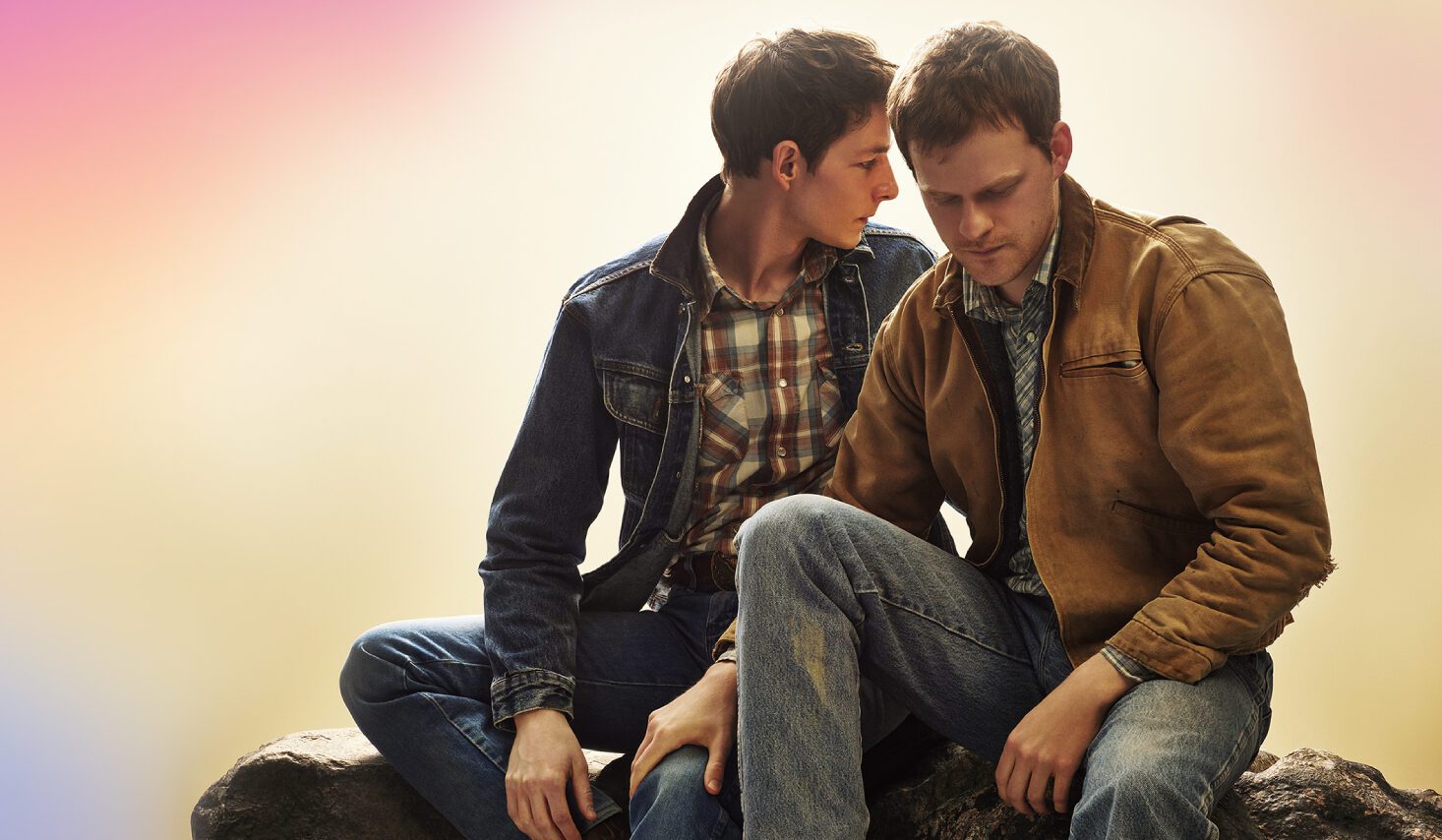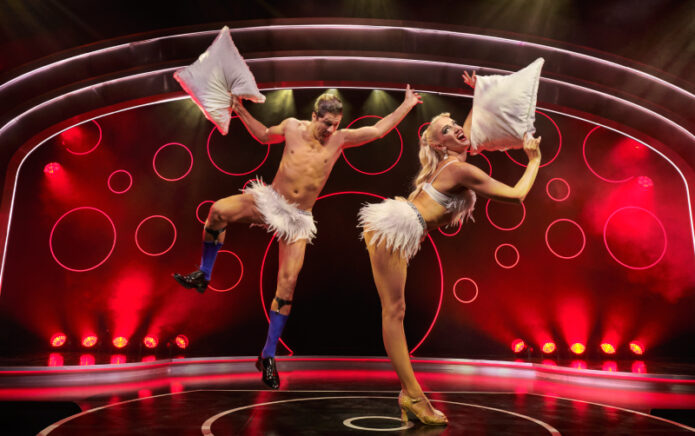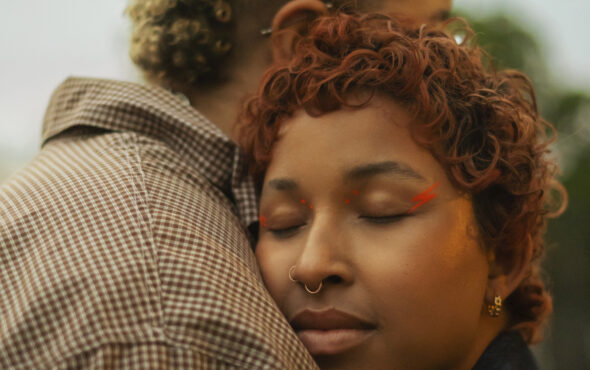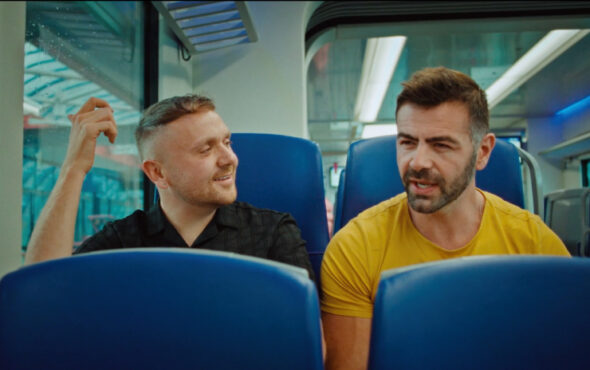
We’re super excited for the world premiere of Brokeback Mountain, the stage adaptation of Annie Proulx’s novel, which is currently in previews at London’s @sohoplace theatre and is due to have its official opening night later this week. Many will be familiar with the 2005 stage adaptation – this new version will star Mike Faist and Lucas Hedges in the lead roles, with singer Eddi Reader performing the songs.
Ahead of its theatrical release we caught up with the creative team behind the production to find out more about what’s in store. During a break from rehearsals we chatted to director Jonathan Butterell, composer Dan Gillespie Sells (who wrote the music for West End hit Everybody’s Talking About Jamie) and writer Ashley Robinson – read on to find out what they had to say…
How did you all come to be involved in this production of Brokeback Mountain?
Ashley: Thanksgiving of 2016, I found an old copy that belonged to a friend who had tragically died a year earlier. He and I had read the story to each other when the film came out… I called Dan up and asked, ‘would you like to collaborate on this piece?’ We’d been talking about doing something together and he said, ‘yeah let’s check it out!’ So we pursued the rights and I wrote Annie a proposal and she said ‘go for it’, she liked the draft. We had her blessing and off we went!
Jonathan: When I met Annie… her writing is so specific, and so of a specific world. I said, ‘Annie, this is who I am, this is where I come from’ – I come from a council estate in Sheffield and I’m a working-class queer kid. I was like, ‘where’s my theme?’ But I’m actually not coming at this story from a queer perspective necessarily, I’m coming from a working-class perspective. I get the fear at the centre of this story, it’s fear-based, it’s around insular thinking, and I grew up in a world that had insular thinking at its centre, and so that really is my ‘in’, as a queer man but also as a storyteller.
I don’t want to live in a world where queer theatre can’t be universal theatre. I feel everyone perceives it to be a love story, or a story about love… I consider it to be a tragedy, a story about what fear does and what fear can create, and a world in which love cannot survive when fear takes over. You’ve got two beautiful characters – one, Jack, who is constantly walking towards a certain kind of life, and he’s going, ‘please, there is a way’… and Ennis being so fundamentally closed in his insular thinking that he can’t shift on that, and therefore there’s that tension. The tragedy is that Ennis is right, in this world of fear it’s impossible for them to come through. That’s the deep tragedy, that’s the ‘every person’ story in it: that fear, at its worst, will destroy.
Dan: There’s so much to talk about when you talk about this story. These people are so of the earth, of the mountain, this actually quite brutal landscape. They’re tough, they’re hardened from childhood by the brutality of this landscape and the people. When it came to telling the story, musically, for me it had to have something very authentic at the heart of it, those edges had to stay intact.
It had to feel like it was the music of the earth, the music of the people who worked the earth, and I think it’s something that I’ve delved into in the research that I did, preparing to write it, was to make sure that came through in the music. And the choice of musicians that we’ve used and the players that we’re working with, they’re all people that get that, and bring that as artists, they bring that authenticity to it. So that drew me to the project.
The film would have been a formative experience for many queer people, especially those who watched it at the cinema when it was released. Why is now the right time to revive this story?
Jonathan: I remember – not just ‘oh there’s a version of me up there on the screen’ but actually it was a version that was different from me, and it had complexities that were different from me. We’re dealing with one man who really has had one homosexual experience in his life, and is unable to move from that – and another man who’s exploring his sexuality, both with men and women, but fundamentally just pulling towards a relationship between two men that feels fundamental to his existence. It felt so complex, it felt so deep and nuanced, I felt this was everybody’s story. I’m not just a queer kid enjoying a queer story, this does feel universal and it felt different to me and my experience in Sheffield.
Dan: I think any time would be the right time to revisit this story. I think it’s just a classic, beautiful piece of writing. What Annie Proulx gave us is a beautifully-written novella which covers a massive span of time so efficiently, so beautifully, so poetically, that I think it just will resonate at any moment in time.
Why do you think our readers should come and see Brokeback Mountain? What will appeal to them?
Dan: As a gay man – and a GAY TIMES reader! – I would say the same reasons that I’m drawn to this story: it’s a story about love, it’s about loss and denial, and these themes, I think, are a big part of a lot of people’s stories. The tragedy of this story is something which I think a lot of people understand and they can feel it themselves when they grow up in a society that can be so challenging. It’s still a challenging place to be queer, to have a same-sex relationship and I think that the threat of violence, the threat of a ruined life – because of your love – is something which I think is inevitably going to resonate.
Jonathan: You cannot walk into this experience and not feel something, and when I say ‘feel’ I mean in the whole messy complexity of what it is to be human: to feel exhilarated, to feel love, to feel what fear can do… particularly in this theatre, you will get pulled into all that feeling, and one thing that goes to the heart quicker than most things is music, and music is a big part of this, it hits you, it’s visceral. So it’s that combination of a mighty story, with music – a play with music.
So what’s the difference between a musical and a play with songs?
Ashley: The characters don’t sing!
Dan: The standard thing for musicals is that the characters sing – Jack and Ennis don’t burst into song! We have a balladeer who is the spiritual guide to the story, she helps us through the story in lots of different ways. The singing is done by her.
What’s it been like to work with Eddi Reader?
Dan: She is extraordinary! We wanted her to be a woman who could have the gravitas to represent everything that the mountain brings, the passing of time, the changing of the seasons and the landscape, all of that has to be brought by somebody with gravitas. I’ve seen Eddi sing for years and she’s just an extraordinary preacher, she’s a fantastic singer, a great musician, and just a very empathetic human being. We put on a bit of a charm offensive and called her up and begged her to do it!
She was like, ‘why would I want to leave Glasgow when I’ve got a nice house here and I’ve got the cats and I’m touring and I’ve got loads of work and I want to write an album, I’m quite busy’ and we were like ‘no, please come and do our play!’ She just brings something really beautiful and authentic, she comes from folk and she knows her country music.
Finally, tell us a bit about this theatre – @sohoplace is an exciting new venue in the heart of London, what’s it been like putting this show together there?
Jonathan: This space is special, for us as storytellers it’s outstanding. There’s a silence in that space that’s oddly like no other theatre I’ve ever been in, so it brings a tension that’s just amazing. It creates an energy in the theatre and what we’re excited about is telling this story in this space, because the audience becomes part of it, that’s the exciting this for us.
Dan: We’re in Soho, we’re in a wonderful new exciting theatre and I think it’s just going to be a real thrill!
Brokeback Mountain is currently in previews at London’s @sohoplace theatre. More information can be found here.



